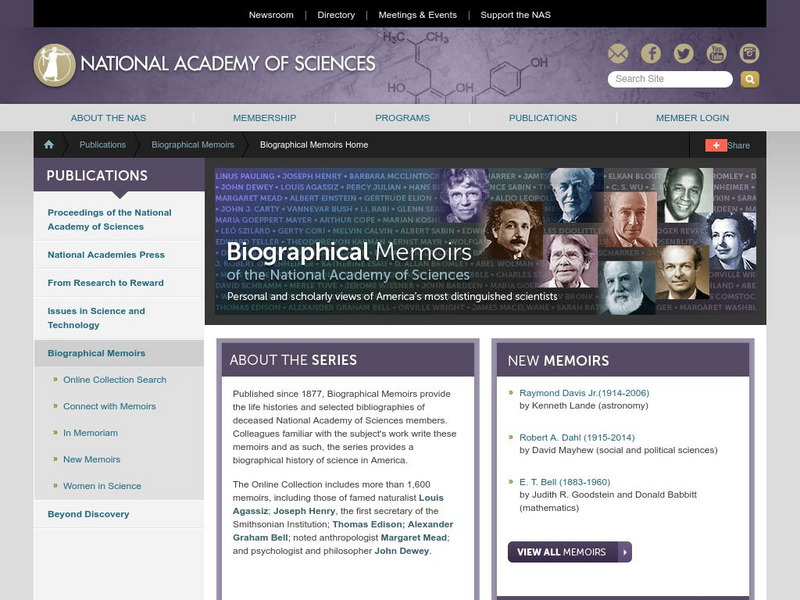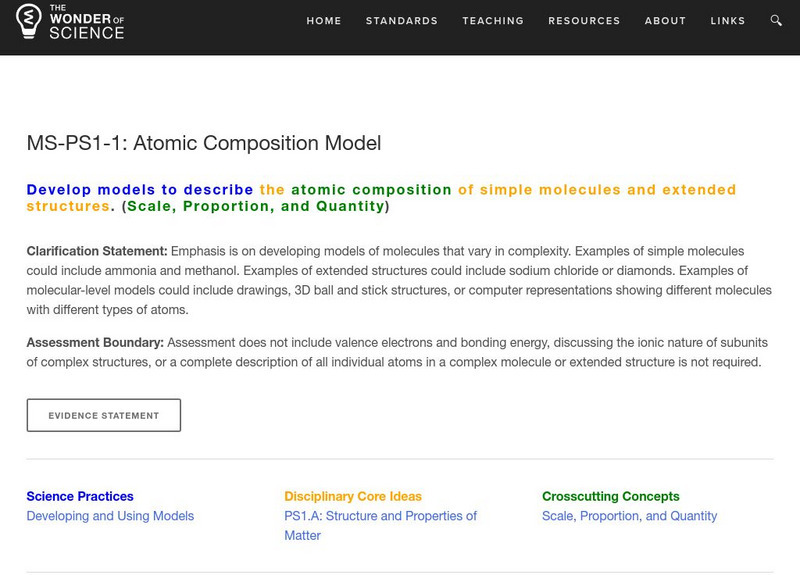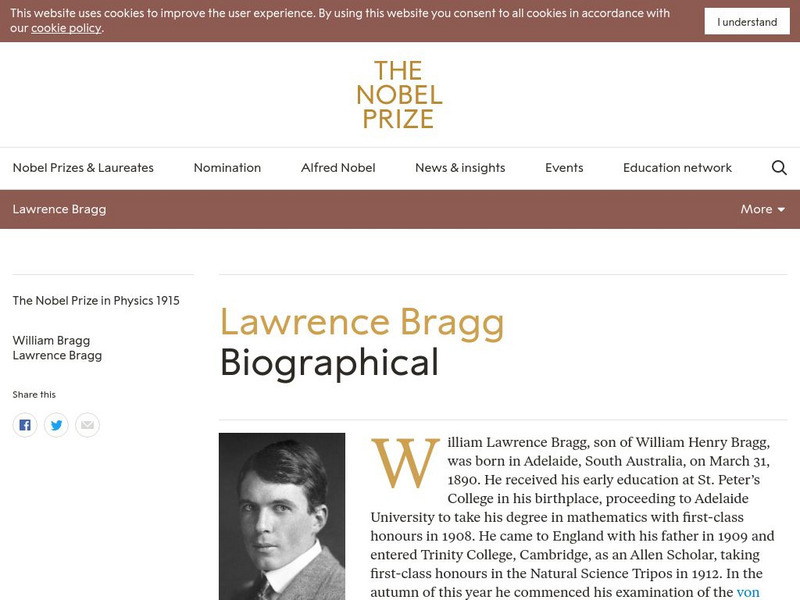Hi, what do you want to do?
Curated OER
Build Your Own Atom
Students build a model of an atom using an online program. In this chemistry lesson, students discuss the different parts of the atom. They complete an independent research about their chosen element.
Curated OER
Periodic Trends
Students identify the different periodic trends. For this chemistry lesson, students discuss how elements are arranged in the periodic table. They apply what they have learned in a Jeopardy team game.
Curated OER
Periodic Table Patterns using Fabulous Periodic
Students explain how elements are arranged in the periodic table. In this chemistry lesson plan, students group the eggs according to a certain pattern. They compare this to elements in the periodic table.
Curated OER
Pauli's Magical Water
Students predict the shape of molecules using VSEPR theory. For this chemistry lesson, students differentiate a polar and nonpolar molecule. They discuss why water's polarity is very important.
Curated OER
Energy Dispersive Spectroscopy
Students calculate the values of electron binding energies. In this physics lesson, students solve for different wavelength characteristics of X-rays. They present their findings to the class.
Curated OER
How Can You Study Things You Can’t See Like: Atoms?
Students simulate how scientists studied things they can't see like atoms. In this chemistry lesson, students predict what is inside the numbered obsertainers. They design a way to investigate what's inside without opening it.
BBC
Bbc: Gcse Bitesize Science: Atomic Structure
An explanation of atomic structure and the element groups in the periodic table using plain language. Supported by diagrams and charts.
BBC
Bbc: Gcse Bitesize Science: Atomic Structure and Bonding Test
A ten-question quiz on the structure of an atom and on atomic bonds.
Science Education Resource Center at Carleton College
Serc: Rutherford's Enlarged: A Content Embedded Activity on Nature of Science
Through a study of Ernest Rutherford's experiments with atomic structure, students develop a deeper understanding of the nature of science. The activity is taken from a linked article by the author that was published in the Journal of...
Khan Academy
Khan Academy: Dalton's Atomic Theory
An article describing Dalton's atomic theory. Learn how this theory was the first attempt to describe a fundamental part of matter, atoms. Article also discusses where the theory is incorrect based on the knowledge we have today.
Khan Academy
Khan Academy: Dalton's Atomic Theory
Article explores the key points of Dalton's atomic theory and the laws of conservation of mass and constant composition. Which points do we still use today?
Concord Consortium
Concord Consortium: Science of Atoms and Molecules: Nucleic Acids and Proteins
Through this activity, students work with macromolecules, proteins and nucleic acids. The focus is on the atomic structure of proteins, how linear polymers are made, and the surface charges of the resulting polymers. . Multiple-choice...
PBS
Pbs Learning Media: Diamonds: The Science Behind the Sparkle
This illustrated essay from the NOVA Web site explains why the atomic structure of a diamond slows down light and produces a sparkle more brilliant than from any other colorless substance.
Georgia Department of Education
Ga Virtual Learning: Physical Science: Matter and the Atom
Students investigate the structure and parts of the atom, and learn about atomic mass and atomic number. They also explore the differences among solids, liquids, gases, and plasma.
CK-12 Foundation
Ck 12: Earth Science: Atoms to Molecules Study Guide
Understand the basic structure of atoms and molecules in the Earth's crust.
CK-12 Foundation
Ck 12: Physical Science for Middle School
This digital textbook covers core physical science concepts and includes interactive features, real world examples, and videos.
Other
National Academy of Sciences: Walter Elsasser
A complete biography of Elsasser's life and contributions to both biological science and earth science. Page also contains a photo of Elsasser. Site includes biographies of other famous scientists as well.
Science Struck
Science Struck: Plum Pudding Model
Describes J.J. Thomson's theory of atomic structure, called the 'Plum Pudding Model,' and how it was disproved by Ernest Rutherford.
BBC
Bbc: Gcse Bitesize Science: Different Substances
A short quiz over the general topics of atomic structure of different substances and bonding properties. The quiz gives immediate feedback over with explanation for the correct answer choice.
Other
Beautiful Chemistry: Beautiful Structures: Quasicrystals
An interactive display of quasicrystals allows students to study the inner components and molecular make-up of these structures. Since the discovery of quasicrystals, a lot of efforts have been put on finding the locations of atoms...
Science Struck
Science Struck: What Makes Up an Atom?
Describes the structure of an atom and the characteristics of the electrons, neutrons, and protons inside it. Includes some interesting facts about atoms.
The Wonder of Science
The Wonder of Science: Ms Ps1 1: Atomic Composition Model
A collection of lesson plans for helping young scholars understand atomic composition. Site uses work samples, phenomena, assessment templates, and videos to plan lessons to describe the atomic composition of simple molecules.
Science Struck
Science Struck: The Structure of an Atom: A Labeled Diagram
Looks at the scientists who developed the model of the atom by building on previous scientists' discoveries about its structure.
Nobel Media AB
The Nobel Prize: William Lawrence Bragg Biographical
The official Nobel biography of William Lawrence Bragg. the son of William Henry Bragg, who shared the 1915 Nobel Prize in Physics with his father. This article focuses on Bragg's science activities, positions, and achievements and honors.





















